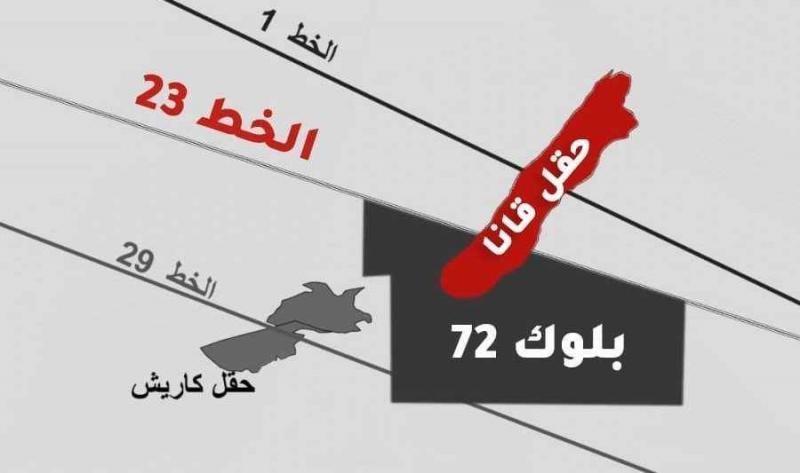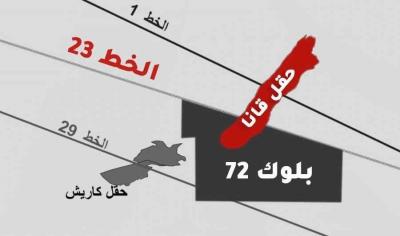A few meters separate Lebanon and Israel from signing the agreement, for which the American envoy Amos Hochstein sent the final draft to both parties, provided that there are no new developments from Tel Aviv amidst the opposition led by Benjamin Netanyahu. In the context of the agreement, the Qana field will belong to Lebanon, while the Karish field will go to Israel.
**Is Qana Field Dry?**
However, Israeli press reported alarming information about the Qana field, indicating that there are no large quantities of gas resources available. According to the Israeli newspaper "Times of Israel", the director of the Israeli Ministry of Energy informed ministers during a Security Cabinet meeting on Thursday that "the estimates regarding the amount of natural gas that could be extracted from this field were much lower than initially thought." Director General Lior Shilat noted that "the estimates from his office and from Total Energies, which holds the exploration rights for the Qana field, indicate that the potential profit from the area in question is only three billion dollars," as reported by the news site "Walla" quoting four officials who attended the Cabinet meeting. According to Channel 13, Shilat told the ministers, "It is also possible that Qana could be completely dry."
**Profit Sharing Between Lebanon and Israel**
It is noted that the presented figure is significantly lower than other estimates published by the media. The business site The Marker estimated potential profits to be around 20 billion dollars. If gas is found in the field, profits will be divided between Israel, Lebanon, and Total Energies. Shilat clarified that "Israel will not be able to know the exact figures until drilling begins at the site," according to the same Hebrew newspaper. Additionally, two ministers present at the Cabinet meeting told "Walla" that the estimated potential profits were lower than what Israel had agreed to receive in previous rounds, while one minister indicated that discussions are about profits that may not be realized for five years. These estimates may be the reason for Israel's retreat from its demands regarding the field.
**What Is the Truth Behind Israeli Estimates?**
International oil expert and Secretary of Lebanon's mission to the World Energy Council, Rudy Baroudi, points out that "no party knows the size of the wealth in the Qana deposit before exploration begins. Despite existing estimates, they are not accurate, and no definitive figures can be determined before the exploration company arrives and starts the operation," denying any party's ability to confirm the quantity through estimates. In an interview with the newspaper "An-Nahar," Baroudi emphasizes that "the estimates for the Karish field indicate revenues estimated at 16 billion dollars, which may increase if additional quantities are found to the north, south, east, or west of the deposit during exploration."
Regarding the operation and the timeline for benefiting from the resources, Baroudi states, "Exploration companies bring their equipment and drills after the border demarcation is completed and the lines are agreed upon, and the exploration and drilling process takes between one to six months. If commercial quantities are found, the companies will then bring extraction platforms." In this context, Baroudi adds, "In my estimation, Lebanon will be able to extract gas within a timeframe of up to 36 months. If the required quantities are found and the exploration company issues a statement announcing the quantity available, it means that these quantities will have translated into money in the state's accounts directly. However, reaching that stage requires the state to implement reforms, as companies are reluctant to engage with countries plagued by corruption." He emphasized that "reforms must encompass various sectors, especially the judicial, financial, energy, and gas sectors, and all states must provide their essentials, as the company conducting the exploration will interact with several ministries, and those public facilities cannot lack the basics."




